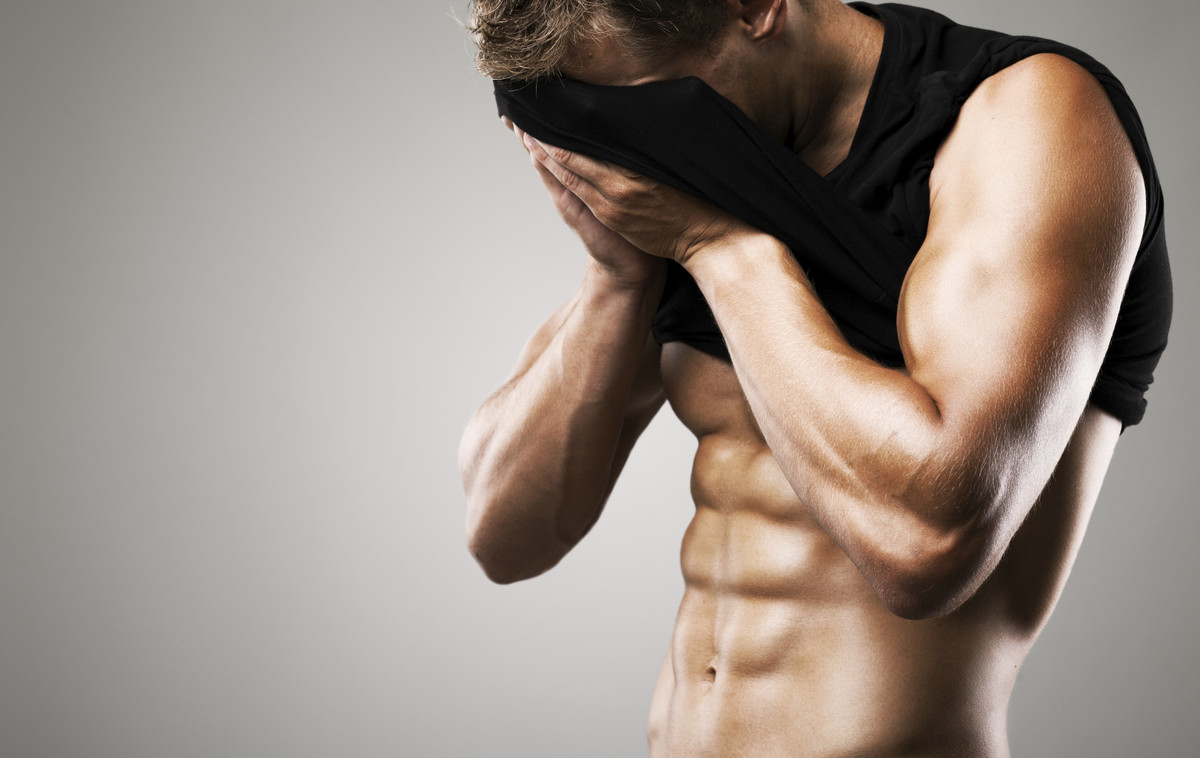Have you ever left the gym after a particularly hard workout and felt your body trembling slightly? It can be a bit disconcerting the first time it happens, but after a while it’s something you no longer even think about. But what is it exactly? And what does it mean? Hopefully, this article will give you some idea as to what is going on.
Firstly, there is no cause for alarm this is actually quite common and affects many weight lifters and casual gym goers. To understand what is happening we are going to have to look into how your muscles contract.
How Your Muscles Contract
Your muscles, or more specifically your skeletal muscles (think biceps, quadriceps, etc) are all controlled by Motor Neurons. These control the muscle fibers allowing them to contract and relax, this structure is known as a Motor Unit.
One muscle will contain thousands of Motor Units and when you contract that muscle it is due to all of the Motor Units contracting individually. But not quite simultaneously. It will appear that it is simultaneous in the same way that a crowd at a sporting occasion may appear to all jump up at the same moment.
If you looked at them individually you’d see that they each jumped at a slightly different time, but viewed from afar it appears simultaneous. This is the same with Motor Units.
So when you are fully rested and just starting out, a Bicep curl will cause all of your Motor Units to contract and you will perform the exercise fine. After an hour of strenuous exercise however, some Motor Units might not be firing due to fatigue.
The more Motor Units that drop out, the greater the pressure on the remaining Units. So now, instead of a nice clean contraction you’re more likely to experience poorly synchronised movements and this can appear as shakes.
After a tiring workout, the Motor Units may still be recovering from the exercise and as a result your muscles may shake. This will return to normal after a while. Now that you are aware of how the muscles shake, we will look into possible things that can aggravate the condition.
General Fatigue (due to lack of sleep)
As explained earlier, your muscles contract when electrical impulses are sent from the Alpha motor neuron to the muscle. When you have experienced a bad night’s sleep your body struggles to send the impulses at the same speed as usual which can cause similar problems to muscular fatigue. The Motor Units fail to respond as well as when you are full of energy and as a result your muscles may experience tremors.
Studies have shown that increasing your sleep has a positive effect on sporting performance. This can be due to increased Growth Hormone, and Testosterone levels. But it can also be due to the improved ability for your brain to send messages to the muscles.
Low Blood Sugar
The effect of low blood sugar on your nervous system is huge, it can lead to confusion, tiredness (fatigue), nausea, and trembling. If you’ve ever seen someone lying on the floor of the gym after a workout, low blood sugar could be the cause. Again, the effects on the muscles are the same. There is a disruption in the signalling between brain and muscle fiber, so the contractions become erratic and this can lead to shakiness.
Luckily there is a simple solution to this, drink a sports drink or eat a high- carb snack. You should be able to avoid low blood sugar completely just by eating a pre-workout meal. Keep the meal high in protein, high in carbohydrates and relatively low in fat. This will not only help prevent low blood sugar but will help you build muscle by providing the fuel for muscle protein synthesis.
Even if you have had a pre-workout meal it is still a good idea to carry a sports drink or banana in your bag as an emergency ration in case you do start to feel the effects. Particularly if you are a diabetic.
Caffeine
This is an interesting one, caffeine doesn’t give you energy like most people think, a cup of black coffee for instance contains just 2 calories. It actually masks fatigue, this means that it tricks your body into not feeling as tired as it should. So a good dose of caffeine can actually prevent your body from shaking as it will lower fatigue (one of the main causes) and improve the nervous system’s effectiveness.
Essentially, caffeine can prevent shaking and its benefits on performance make it a great pre-workout supplement. But when over-used caffeine can actually exaggerate the issues of fatigue and can exacerbate the shaking. Also, if you are having serious fatigue issues due to lack of sleep (or too much caffeine in your diet) then taking more caffeine will increase stress which can cause muscle tremors.
Dehydration
When people are dehydrated they don’t perform as well as they should, the signals from the brain to the muscle can get disrupted and this will lead to muscles not performing how they should. If you have ever seen footage of a severely dehydrated person trying to run – for example there is footage of a woman completing the marathon whilst suffering the effects of dehydration – you will at first believe that they are drunk.
This is because the signals from the brain to the muscles are not firing properly and as a result the muscles aren’t responding as they should. So to avoid this situation, try to keep well hydrated whilst exercising. Don’t go overboard and carry a 2 gallon bottle on your shoulder, just make sure that you have at least a small bottle so that you can top up between exercises.
Conclusion
Only exercise when you are in good condition, eat well, sleep well, stay hydrated, and use caffeine sensibly and you may never experience shakiness after a workout. Exercise hard too, but know your limits. Going to the gym should be fun, not a nightmare!

